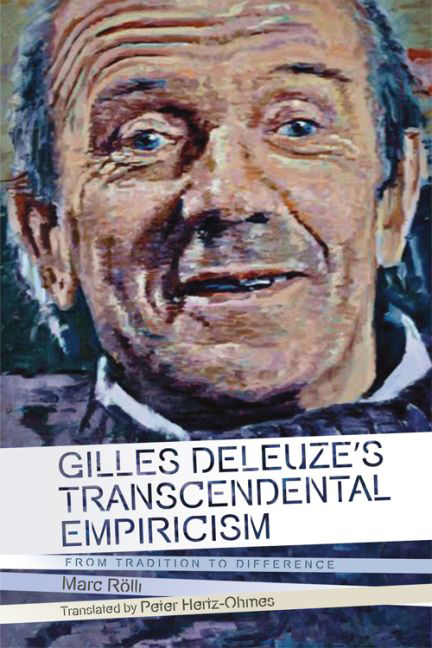Book contents
PART II - FROM PHENOMENON TO EVENT
Published online by Cambridge University Press: 27 April 2017
Summary
The systematic construction of transcendental empiricism is carried out from the double perspective of a transcendental critique of empiricism and an empiricist critique of transcendentalism. Decisive impulses for a fruitful compression of these perspectives come from Husserl and Heidegger. In line with his new conception of genetic phenomenology, Husserl, in a positive inspiration, reaches back to the Kantian concept of the transcendental synthesis, which – as we have seen – stands in the problematic centre of a critical empiricism. Husserl's Analyses of the Passive Synthesis are appropriated quite literally in the second chapter of Difference and Repetition. The characteristic passivity of the syntheses expresses Husserl's empiricist motivation. For him the active synthesis, as the production of understanding, rests on earlier associational syntheses that are not regulated categorially. Husserl's thoughts on the genealogy of logic reflect his relationship to Humean philosophy.
In contrast, Heidegger loses sight of the empiricist context when, in connection with Husserl's analyses, he treats the ontological underpinnings of experience. Heidegger's anti-empiricist predilection corresponds to his secret alliance with a ‘Being’ that withdraws from experience's plane of immanence. Nevertheless, in the following discussion I will try to develop with and against Heidegger the problem of thought's temporalisation. The insights in Heidegger's critique of metaphysics and subjectivity cannot be ignored. It will turn out that Heidegger's late philosophy should be taken seriously in its attempts to be self-critical and that it announces a philosophy of difference that distances itself from the ritualising character of his allegiance to Being. Deleuze has been particularly influenced by Heidegger's analyses, in his book on Kant, regarding the temporal character of the transcendental syntheses of imagination, as well as by his later critique of the onto-theological determination of representational thought which is supported by a ‘post-metaphysical’ ontology of difference.
In this Part, the phenomenological preparation for transcendental empiricism will be reconstructed in two steps. First Husserl's efforts in the field of transcendental phenomenology will be examined with an eye to their influence on Deleuze's concept of experience. I follow with a discussion of Heidegger, first looking at his much debated interpretation of transcendental aesthetics and analytics in the Critique of Pure Reason in the 1920s, and then at his critique of representational and onto-theological thought, undertaken in later years, culminating in the ‘leap forward’ into the event.
- Type
- Chapter
- Information
- Gilles Deleuze's Transcendental EmpiricismFrom Tradition to Difference, pp. 93 - 94Publisher: Edinburgh University PressPrint publication year: 2016



